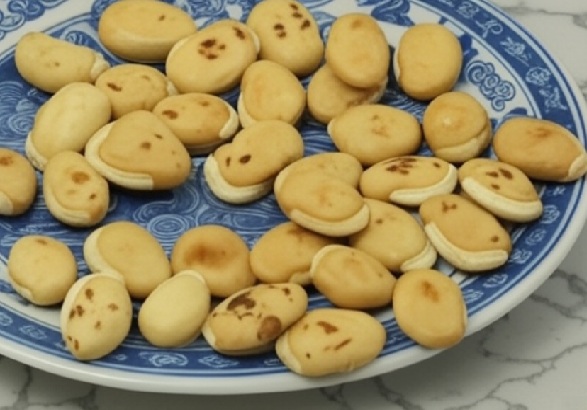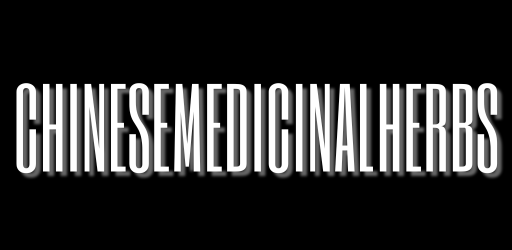Hyacinth Bean

Hyacinth Bean (Bai Bian Dou): A Strengthening Herb for the Spleen, Digestion, and Summer Heat
Introduction
Hyacinth Bean, known as Bai Bian Dou (白扁豆) in Traditional Chinese Medicine (TCM), is the mature seed of Dolichos lablab L. Mild, sweet, and strengthening, Bai Bian Dou is prized for tonifying the Spleen, harmonizing the Stomach, and dispelling dampness. It is especially valued in summer for easing heat-related digestive issues and fatigue. In both herbal medicine and Chinese cuisine, it is often cooked in soups, congees, or teas to promote vitality and support digestion.
What Is Hyacinth Bean?
Bai Bian Dou comes from the white or pale seeds of the Hyacinth Bean plant, a climbing legume native to Asia and Africa. In TCM, it is classified as sweet and slightly warm, entering the Spleen and Stomach meridians. After harvest, the beans are dried or stir-fried to enhance their strengthening properties. They have a mild, nutty flavor and are widely used in herbal soups or porridge to nourish the body and prevent digestive weakness.
Health Benefits of Hyacinth Bean
Strengthens the Spleen and Supports Digestion
Bai Bian Dou is one of the primary herbs used to reinforce Spleen Qi, especially for symptoms like poor appetite, loose stools, fatigue, or a heavy sensation in the body. It gently restores digestive strength and helps the body better process food and nutrients.
Transforms Dampness and Relieves Diarrhea
This herb helps to dry internal dampness and clear excess moisture that can cause bloating, nausea, or diarrhea. It’s often used in formulas to address summer dampness or chronic digestive imbalance.
Clears Summer Heat and Reduces Fatigue
Hyacinth Bean is a classic remedy for “summer heat,” a TCM condition marked by tiredness, thirst, and poor digestion during hot weather. It refreshes the body while protecting the Spleen from overexertion caused by heat and humidity.
Supports Immunity and Energy
Rich in plant protein and nutrients, Bai Bian Dou helps replenish energy after illness or weakness. It gently strengthens the body without being too heavy or cloying.
Soothes Nausea and Vomiting
Because it harmonizes the middle burner (the digestive system), Bai Bian Dou can ease nausea, especially when caused by dampness or indigestion.
How to Use Hyacinth Bean
In Herbal Preparations
Bai Bian Dou is commonly decocted or simmered in soups. For general use, combine 15–30 grams of dried beans with herbs like Fu Ling (Poria), Yi Yi Ren (Coix Seed), or Dang Shen (Codonopsis) for digestion and energy. The beans should be cooked thoroughly to remove natural toxins before consumption.
In Daily Teas and Foods
Add Hyacinth Bean to congee, chicken soup, or herbal broths for a nourishing, mildly sweet flavor. In summer, it can be paired with mung beans and lotus seeds for a cooling, restorative soup that strengthens the body and clears damp-heat.
In TCM Formulas
Bai Bian Dou appears in formulas such as Shen Ling Bai Zhu San to strengthen the Spleen and resolve dampness. It often works alongside Bai Zhu (Atractylodes), Fu Ling (Poria), and Gan Cao (Licorice Root) to improve digestion and prevent fatigue.
Where to Buy Hyacinth Bean
You can find Bai Bian Dou at:
- Chinese herbal pharmacies and TCM shops
- Asian grocery stores (often sold as “White Hyacinth Bean” or “Lablab Bean”)
- Online herbal retailers such as iHerb, Amazon, or ChineseHerbsDirect
Look for:
- Clean, white or ivory beans with a smooth surface
- Uniform color and no mold or discoloration
- Beans that are GMP-certified or tested for safety and purity
Are There Any Side Effects?
Hyacinth Bean is safe when fully cooked. Raw or undercooked beans can cause mild digestive discomfort due to natural plant compounds. Use caution if you have constipation or dryness, as the herb is mildly drying. Pregnant or nursing individuals should consult a practitioner before use.
Conclusion
Hyacinth Bean (Bai Bian Dou) is a gentle, nourishing herb that strengthens the Spleen, improves digestion, and helps the body resist dampness and summer heat. Cherished in TCM and everyday cooking, it restores balance, supports vitality, and promotes digestive harmony through its mild yet fortifying nature.
FAQs
Can I eat Hyacinth Bean every day?
Yes, when fully cooked. It is mild and suitable for regular use in soups or congee to support digestion and energy.
Is Hyacinth Bean good for summer heat?
Yes. It clears summer dampness, relieves fatigue, and strengthens the Spleen to help the body handle humidity and heat.
Can I combine Bai Bian Dou with other herbs?
Absolutely. It pairs well with Lotus Seed, Coix Seed, and Poria for digestion and with Mung Beans or Lily Bulbs for summer nourishment.

